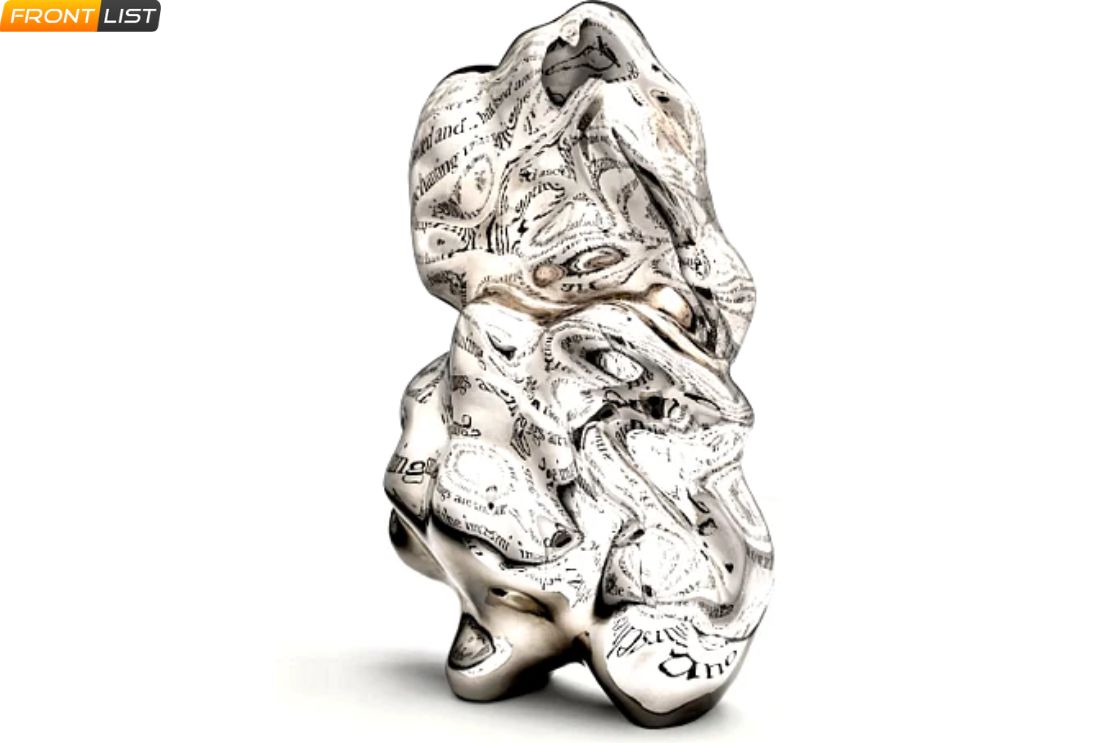JCB Prize for Literature Faces Backlash Over Hypocrisy
Critics condemn the JCB Prize for Literature, linking its funding to mass demolitions and displacement, exposing the paradox between art and destruction.on Jun 25, 2025

In a decade where distortion is a trend in culture, what needs to be done is to rebuild what has been destroyed and destroy what destroys by demolition, both at the physical and psychological levels. In 2021, Amnesty International reported the news of the collapse of a century-old mosque in Uttar Pradesh's Barabanki district. In 2023, an old mosque constructed in the 16th century was demolished to widen a road in Allahabad (now Prayagraj).
In the same manner, in an early 2022 report, journalists at Amnesty International gave information regarding the destruction of more than 300 houses that later grew to be the uprooting of 600 families and the loss of their means of livelihood, during the latter half of the same year. The Delhi riot was one of the big outcomes of this action and dirty communal politics was at play. In all these activities, J.C. Bamford Excavators Limited (JCB) became the main weapon of the institution. A company that was founded in the United Kingdom confirms this notion that we are still not rid of colonial weapons.
The same company is also reported to be linked with the Israeli government in the displacement of Palestinians from their homes. Companies are institutions that only labor for profit and chaos. This is just one of the numerous reasons why in the Middle East, Iranians, Israelis and Americans are allegedly utilizing the company to destroy dreams, murder hope, level the houses of Palestinians, Iraqis and Afghans. Prior to 2021, a plethora of Indian governments employed the same company to 'cleanse' the landscape of the homes of numerous tribal groups of Chhattisgarh, Jharkhand, Telangana, Sundarbans and Odisha. In Manipur, the same corporation has been active for decades to divide the land. Its consequence is the complete alienation between the Meiteis and the Kukis.
Hypocrisy and a Cover-up
An institution that operates to kill human hope always prepares for a cover-up. It is a requirement for them to remain meaningful in society. For instance, when dynamite that was originally used primarily for mining activity was converted to a weapon to be used in assassinating innocents during the World Wars, Swedish society began the Nobel Prize in honour of the creator of dynamite Alfred Nobel, and began to award scientists, scholars and artists to establish a strong cover-up. Godmen construct hospitals, schools and a few other 'moral' institutions to either make their untaxable money yield a profit or to maintain the image of sanctity in front of their devotees. JCB knew what it was doing, and so it appears to have created an award in the hope of letting everyone forget that it was doing. The JCB Prize for Literature, instituted in 2018, with the passage of time, evolved into a significant honor for Indian writers and translators.
The whole literary world began to revolve around this award and its funds and glory. Little was mentioned about how the concept of the award was flawed. In 2019, the award was awarded to Madhuri Vijay for her novel The Far Field, which deals with the politics of Kashmir from a family and its folks' perspective. Ironically, JCB company was a significant player in the politically motivated cleansing of many Kashmiris from their homeland. Peter Frankental, Economic Affairs Director of Amnesty International UK, had stated, "If JCB does nothing about Kashmir it would be yet another example of the company falling short of its responsibility to carry out proper human rights due diligence on how its machinery is being used internationally.". In the same year that Vijay was awarded, some Kashmiris protested and marched in the streets against the government and JCB because neither of them had issued any warning first before destroying their houses. In 2021, the award went to M. Mukundan for his book Delhi: A Soliloquy, which discusses the refugees and migrants of Delhi.
The novel deserved the prize it received because it is well-written and provides a voice for the individuals who were forced to remain concealed behind tarpaulins during the visits of prominent international personalities to the capital. Sadly, the organization that awarded Mukundan the prize turned into the government's tool when the authorities requested it to clear a whole slum within two days in 2023. Individuals who joined hands to protest against this act subscribed to the literary award offered by the company. In spite of numerous scathing Amnesty International's reports, the award remained active and kept much of the literary circle in India under its influence. The prize presented itself as benign, sympathetic and charming (a imitation of the West). So when one looks at the JCB Prize for Literature as the Booker Prize of India, it is no surprise. The surprise is nourished in the complete unawareness of the paradox that is so glaring. Perumal Murugan's novel Fire Bird won the JCB Prize in 2023. This was the year in which the bulldozers of the company displaced a huge population in India and in the Middle East. A book discussing displacement, settlement and oppression won a prize, but the lives lost in a matter of six months were not remembered.
It's both tragic and hilarious to see intellectuals buying into an award offered by a company whose owners are doing the very opposite of what they believe mankind should be engaging in. It makes the exchange Joker vomited out at Batman in the film The Dark Knight a combustible reality. He states: You see, their morals, their code, it's a bad joke. Dropped at the first sign of trouble. They're only as good as the world lets them be. I'll demonstrate. When the chips are down, these. these civilized people, they'll devour each other. See, I'm not a monster. I'm just ahead of the curve. The Atmosphere of Capitalism The JCB Prize for Literature winner was awarded a prize money of Rs. 25 lakhs, which is no small sum. We forget that the same prize money was drenched in tears and destroyed hope.
We protest against the misuse of money in temples, mosques and other so-called charitable institutions.
But we are still civil when authors who have publications from major publishing houses get an amount equivalent to fifty MUDRA loans and a minimum of seven small CC loans. The first being the largest reason why defaulters in the banks are produced, and the second only for 'good' businesses. The houses that are destroyed by the JCB company take two lakh rupees (if constructed under the Pradhan Mantri Awas Yojana). And if they are not constructed under this scheme, then on an average, one has to spend Rs 60,000 to get walls of bamboo and a mud floor. The act of awarding the prize money of Rs 25 lakh to a writer is akin to every heinous act governments commit in order to silence people. An act like this could only be done in a place and time when the notion of capitalism becomes the norm and even intellectuals begin to accept its bloody demons. In order to maintain the spirit of capitalism, the award remained operational and active for writers and publishers who command a market share. The larger Indian publishers eagerly awaited its award. From the point of view of the publishers, this action was not incorrect because they need to expand their own market.
But if an award is recognized as a credible one in the literary world, it will need to expand its circumference. The JCB Prize for Literature did not do that. Just two titles from small presses were shortlisted for this award, which had caused so much to resonate in the minds of writers and among the literary community. Being Shut Down Being compassionate and understanding towards an award and the literary community is good in a period of separation. But, simultaneously, we should realize that over 128 scholars signed a letter against the very existence of JCB Prize for Literature. This is not a prize being forcibly closed down by the establishment or, more accurately, by the government.
Individuals stood forward and signed against its hypocrisy and cover-ups.
An act of sympathy towards its loss is an act of questioning the opposition of authors who raised their voices for justice and resistance. During times of oppression, sympathy towards a destructive force of society makes the whole emotional process seem dichotomous. The motive of the JCB Prize for Literature barely comes into play when its actions, in these seven years, became the cause of collective wrath.

.jpg)
.jpg)
.jpg)
.jpg)
.jpg)
.jpg)

.jpg)
.jpg)
.jpg)
.jpg)


_(1).jpg)
.jpg)










Sorry! No comment found for this post.